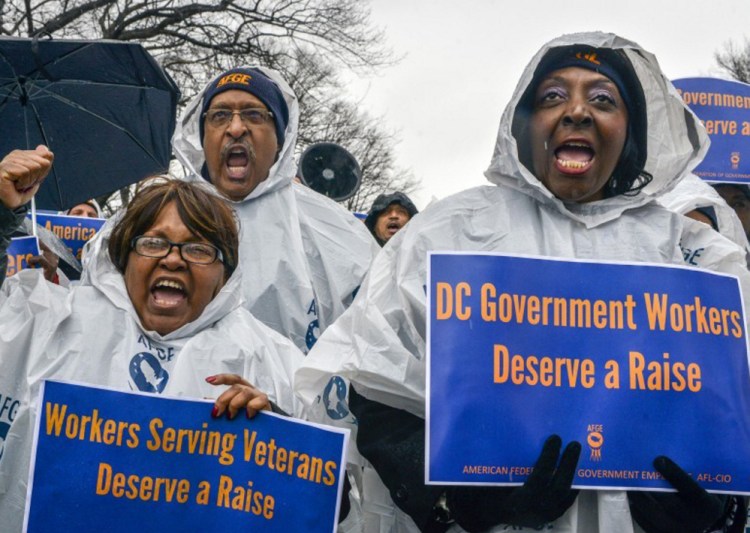WASHINGTON — Federal labor leaders might want to don their hard hats.
It’s a risky time for federal unions. Republicans in Congress are pushing legislation that could make the work of labor organizers much more difficult.
The latest move came Tuesday, when the House Oversight and Government Reform Committee approved an “official time” bill targeting federal government unions.
Republicans have long taken aim at official time, which allows agency employees, who also are union officials, to conduct certain, limited types of union-related business while being paid by the government. The committee-endorsed bill would require agencies to provide detailed information about the use of official time. By itself, it is not a direct hit on the practice. Instead, it could arm Republicans with the ammunition they need in their broader effort against unions.
Casting it as an accountability measure, Rep. Jody Hice, R-Georgia, said the legislation is “absolutely necessary” to determine how official time “contributes to the productivity and effectiveness of the federal government.” Republicans think it detracts from both.
But Rep. Stephen Lynch, R-Massachusetts, said Republicans have a fundamental misunderstanding of official time. Management has the exclusive right to grant official time and it is used for discussions over such things as workplace efficiency, safety and training, he said.
“Official time is the bedrock of productive labor-management partnerships that result in untold savings for the federal government,” said National Federation of Federal Employees President William R. Dougan. “Official time is efficient time.”
One more thing. “Federal employees are strictly prohibited by law,” he noted, “from using official time for internal union business.”
And the official time bill could be the least of federal labor’s worries. There’s another bill that could break federal labor organizations.
Offered by Rep. Tom Price, R-Georgia, it would assault unions by prohibiting paycheck deduction of union dues, as is common in the private sector. It also would require a majority of all federal workers in a bargaining unit to vote for union representation, rather than a majority of those voting. Requiring the majority of everyone eligible is a much more difficult bar to cross.
“Provisions of this bill are intended to end labor unions in the federal sector,” said Gregory J. Junemann, president of the International Federation of Professional and Technical Engineers.
Send questions/comments to the editors.



Success. Please wait for the page to reload. If the page does not reload within 5 seconds, please refresh the page.
Enter your email and password to access comments.
Hi, to comment on stories you must . This profile is in addition to your subscription and website login.
Already have a commenting profile? .
Invalid username/password.
Please check your email to confirm and complete your registration.
Only subscribers are eligible to post comments. Please subscribe or login first for digital access. Here’s why.
Use the form below to reset your password. When you've submitted your account email, we will send an email with a reset code.